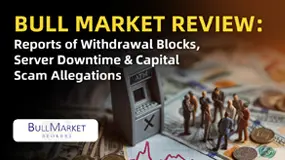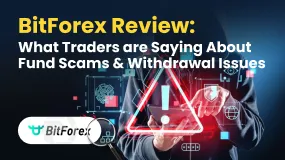Abstract:Italy's financial watchdog, Consob, intensifies its crackdown on unauthorized financial service providers by blocking access to six new websites, aiming to shield Italian investors from potential fraud and risks associated with unregulated financial services.

Italy's financial regulatory authority, Consob, has taken a resolute stance against unauthorized financial service providers by blocking access to six new websites. The objective is clear: safeguarding Italian investors from potential fraud and risks associated with unregulated financial services.
Consob, the nation's Commissione Nazionale per le Società e la Borsa, has directed ISPs to block four offshore websites operating without authorization within the country. This aggressive move marks a significant step in combating unauthorized providers, part of Consob's ongoing efforts to shield retail investors from illegal financial services.
One concerning aspect flagged by Consob is the possibility for fraudsters to pose as legitimate financial services providers by registering domain names with relevant suffixes like '.bank' and '.fin'.
The crackdown extends beyond unauthorized providers, encompassing product offers from firms holding licenses in other jurisdictions. This strong regulatory action comes amidst the persistence of offshore brokers seeking online trading business in Italy.

Italian investors are cautioned against engaging with several flagged entities, including “BTX,” “Tide Technologies Group,” Fast-MNG EU Limited, “Alfacapitalinvest,” “Bitcoinup,” “UfinaCapital,” and Digital Trust CSP Fzco. These websites often employ tactics to lure inexperienced clients into trading highly leveraged products.
Consob's vigilance since July 2019, when granted authority to ban unregulated financial intermediaries' websites, has resulted in the blacklisting of a staggering 977 offshore sites.
The ultimate aim for the regulator is the eradication of unlicensed trading in Italy, fostering a secure environment for local investors. Employing a mix of AI-based algorithms, investigations, and customer reports, Consob identifies offshore operators engaging in illegal activities.
The regulatory arsenal expanded significantly when the 'Growth Decree' granted Consob extended powers. With this decree, Consob can instruct Italian ISPs to block websites in the region. However, due to technical constraints, the blackout might take several days to come into effect when websites temporarily shut down.
Consob's determined actions signal a relentless pursuit to clamp down on unlicensed trading activities, reinforcing a robust and protected landscape for Italian investors.











